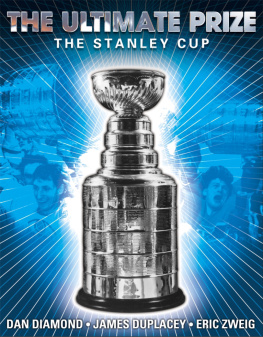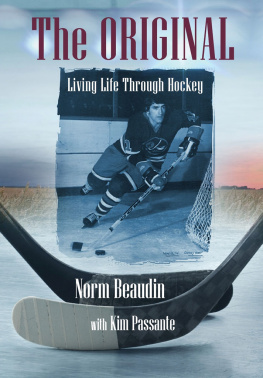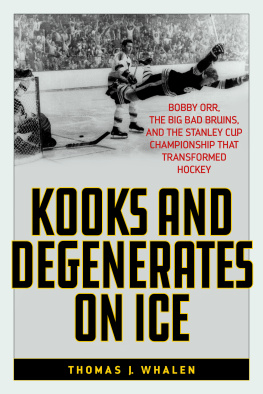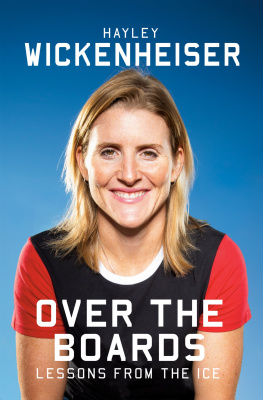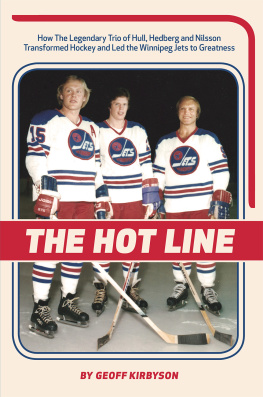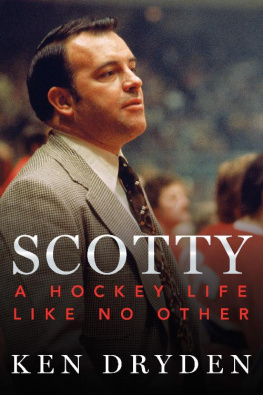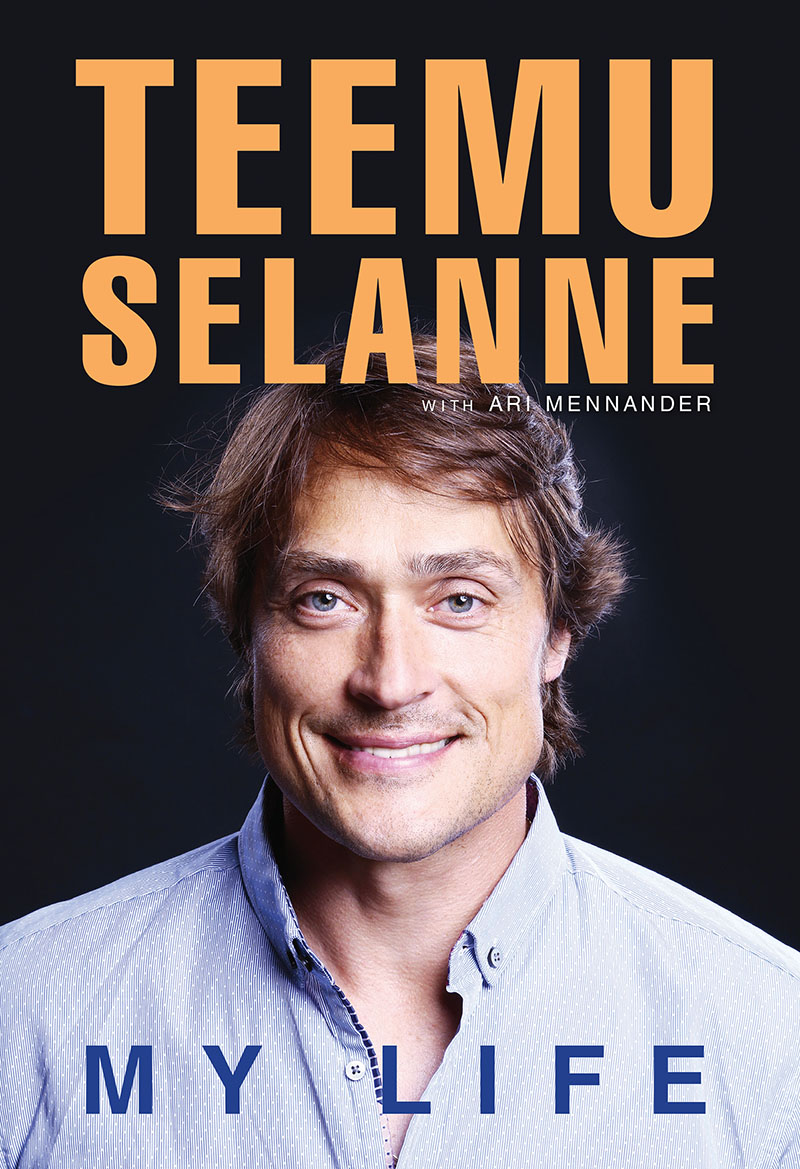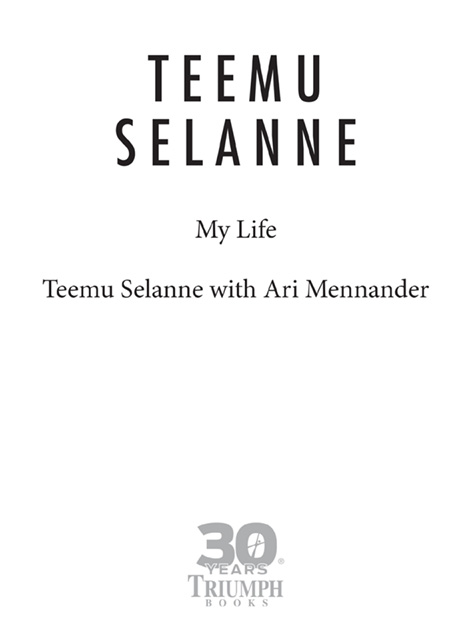
To Mom and Dad, without whom none of this would have been possible.
Contents
Introduction
I was born into a family that believed in dreams and hard work. My family had nothing in excess. We lived within our means, and we never felt we needed anything more than we had.
My mothers upbringing helped me throughout my life. She taught me I may not like every person I meet, but I can get along with almost everybody. She taught me to respect others and to treat people as I would want them to treat me. Mom gave me warmth and love.
Dad taught me the importance of ambition and that what goes around comes around. He once told me that loving what you do is one of the best things that could ever happen to you. I remember him telling me that even if youre not good at something, even if you struggle doing it, if you really love what you are doing, no matter what it iswhether youre a plumber or a physicianthen its what you should do. His credo was if you are passionate about something, and you work hard at it and you are willing to make sacrifices, then the sky is the limit.
My parents gave me the keys to my dream when I was 12 years old. They saw how much I loved hockeyhow much I loved lacing up my skates, putting on the gear, and stepping onto the ice, stick in hand. And as loving parents, they supported me so I could chase my dream. They also told me if hockey did not work, I could always go back to school. If youre ready to do your best, well do our best to support you. But if youre not fully committed to giving it your all, thats the end, they said.
And thats why if I wasnt in bed by nine in the evening as we had agreed, I had to take the bus and train to practice. Simple as that.
For a few different reasons, the book youre about to read is written in the third person. Part of the reason why is that I wanted to include quotes from my friends, family members, and former teammates, who know me better than anyone. And part of it is that I wanted to make sure my story, translated into English, appeared exactly as I intended it. But I have been deeply involved in the writing and shaping of this book, and I hope you enjoy reading about my life as much as I enjoy living it.
Teemu Selanne
Part One
A Dream Come True
Coto de Caza, California, June 6, 2007
Southern California was in the middle of a heat wave, with scorching temperatures and humidity turning the area saunalike. Most of the Anaheim Ducks players had spent the previous night at a hotel, but Teemu Selanne woke up at home. Hockey players are creatures of habit, and on the eve of the biggest game of his career to date, Selanne preferred sleeping in his own bed. It might have been the eve of Game 5 of the Stanley Cup Final, but Selanne treated it as just another home game, which meant familiar surroundings rather than a hotel room.
He ached all over. It had been a long season, and that nights pressure-packed game was going to be his 103 rd of the season and the 21 st in the grinding marathon known as the Stanley Cup playoffs. It would also be the Ducks first chance to clinch the most desired championship in hockey, the Stanley Cup, the Holy Grail of the coolest game on ice.
I slept at home before every home game because I slept much better there. Almost everybody else in the Ducks stayed at a hotel throughout the playoffs, Teemu said. Although that night, I didnt sleep a wink. It was so hard to even sleep.
Pretty much every night in the Finals I did not sleep that much. I was so tired and beaten up like everybody else at that point. The playoffs are two months of war, mentally and physically. It is so hard. Every shift is so challenging. During the season you can take shifts off but in the playoffs, one shift can change the whole thing.
I knew what was at stake. Funny thing is, in the playoffs, your body is like a racehorse and is ready to go. I knew we could win the Stanley Cup that night, and I was awake and ready to go.
In 14 seasons with the Winnipeg Jets, the Mighty Ducks of Anaheim, the San Jose Sharks, and the Colorado Avalanche, Selanne had earned the reputation of a marksman, a skilled scorer. He had hands of gold and lightning-fast speed on the ice.
But one prize had escaped his clutchesthe Stanley Cup. For players in the worlds best professional hockey league, the NHL, nothing else compared and nothing else mattered. The Stanley Cup is the hardest club trophy to win; after a grinding, 82-game regular season, NHL teams have to endure the pressure-packed playoffs.
The closest thing to winning the Cup is winning an Olympic gold medal. Selannes silver medal from the 2006 Torino Olympic Winter Games was merely a reminder that a championship team wins its last game of the season. You dont mine silver in hockey.
Players often play hurt, but they never play when they are injured, and Selannes body ached all over. But he was determined not to let a championship slip away again, not when reaching the top was one victory away.
The Stanley Cup is extremely difficult to win: many, possibly most, players go an entire career without even having had the chance to play for it.
Selanne re-signed with the Ducks in 2005 and nobody knew if his wonky knee, which underwent reconstruction the year before, would hold up to the rigors of an 82-game schedule plus a punishing playoff run.
Selanne was a fan favorite during his first tour with Anaheim, and when he reached out to management about returning to the team, he told them he was willing to play for nothing. I didnt care about the money, he said. I believed in the team and I wanted to stay at home.
His goal was to be on the first California-based team to win the Cup. And the Ducks were good; some said it was best Ducks team ever.
The old adage that timing is everything spoke to this point in Selannes career. An ugly labor dispute between the NHL and the NHL Players Association had wiped out the entire 200405 season. This provided Selanne ample time to recover from reconstructive knee surgery, timing that gave him a chance to heal.
His comeback was one for the ages. The veteran forward led his team in scoring in 200506 and in 200607 at the age of 35 and 36, respectively.
On the morning of Game 5 of the Stanley Cup Final against the Ottawa Senators, Teemu did what he had done thousands of times before. He woke up, ate a bowl of cereal with berries, had a coffee, and left for the rink.
No words were needed, and no words could have encapsulated the moment.
Family and friends have always meant everything to Selanne, and there was no chance he would not have shared this playoff run with those who meant the most to him. On hand at his sprawling home in Coto de Caza were Teemus mother and father, Liisa and Ilmari; his twin brother, Paavo, and sister-in-law, Reija; his wife, Sirpa; and his mother-in-law, Terttu.
Ilmari and Liisa were separated by then, and Ilmaris new wife, Kirsi, hadnt been able make the trip for work reasons. Sirpas father, Erkki, had been stopped from traveling on doctors orders. Teemus brother Panu didnt get a new passport in time and had to stay in Finland.
I dont think many other players are used to having their mother and mother-in-law living with them during the playoffs, Teemu said with a laugh.
Its not like the Selanne household was an oasis of calm to begin with. Teemu and Sirpa had three boys under 12. Eemil was 11, Eetu, 9, and Leevi, 7, and it was constant chaos.
To add to the drama, Teemu and Sirpa were sitting on a secret they had shared only with their parents: Sirpa was pregnant. We had always considered our family to be complete until I wanted to have another little baby, Sirpa said.


